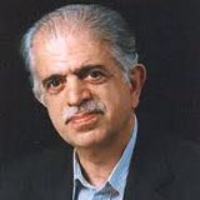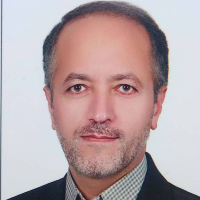Meta-Governance, a Step in Improving the Governance Model Case of study: Petrochemical industry of Iran
Despite the strengths of the new public governance, researchers have noted the necessity of governance over network governance or meta -governance and ensuring the achievement of public interests and the effectiveness of network actors' activities. But some theorists have considered meta -governance as governance over any governance mode, which is the subject of future research. This research seeks to find the meta–governance model of the existing governance system of the petrochemical industry and solve the challenges related to the lack of a central strategy. Pattern extraction with the help of structured grounded theory method and through in-depth interviews with 22 people (snowball sampling and the necessity of theoretical sampling) from experts and managers in public and private sectors of industry as well as NGO and the initial and centralized coding and analytical notes were done. The 20 theoretical categories found in three clusters and with a systematic connection, have depicted the model of the meta -governance of the industry. The results of this research put meta -governor responsible for designing, steering and evaluating the governance system of the industry by explaining the composition of governance and the role of actors, policymaking and macro planning of the industry and the formulation of functional and professional requirements and criteria; Embedding frameworks and implementing coordination and ensuring the alignment of activities with macro plans; Facilitation of financial resources, information and infrastructures, as well as efforts to empower and find solutions And finally, the actors should be held accountable for the realization of the policies, macro plans, the requirements and standards, and by obtaining feedback, meta -governor should demand reforms and force them if necessary. Applying this meta-governance is possible through amendments in the superior documents and the structure and revision of the duties of the organizational units (at different levels) of the headquarters of the Ministry of Petroleum and the National Company of Petrochemical Industries of Iran.
-
Analyzing the concept of evaluation of human resource preservation policiesAccording to Rogers' evolutionary approach
Mohsen Bigdeli, Ahmad Vadadi *, Vagholllah Ghorbanizadeh
Journal of Military Human Resources Management, -
An Alignment between National Development Administration and Foreign Policy
Reza Vaezi *, Atefeh Asadi, , Seyed Jalal Dehghani Firouzabadi
Management Researches, -
The strategies of street-level bureaucrats in the implementation of environmental policies
, Seyed Mahdi Alvani, Hossein Aslipour, Aghil Ghorbani Paji *
Journal of Strategic Management Studies, -
Architectural Model of Network Participation of Scientific Elites in Science and Technology Policymaking in Iran
Ali Ferdosi Jahromi *, Davood Hosseinpour
Iranian Journal of Public Policy, -
Branding model of organizational leadership with employee experience management approach
, Farzaneh Aslibeigi *, Mirali Seyyed Naghavi, Alireza Koushkie Jahromi
Management Studies in Development & Evolution, -
A meta-theory in organizational leadership based on unitary ontology
Fatemehsadat Mir *, Seyyed Medi Alvani, Hamed Dehghanan, Mehdi Golshani, Zohreh Dehdashti
Management Studies in Development & Evolution,




